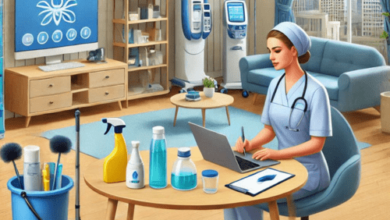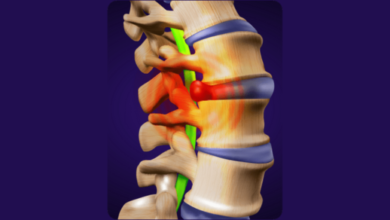
Achieving international accreditations is a testament to a laboratory’s commitment to quality, accuracy, and reliability in diagnostic testing. These accreditations ensure that laboratories meet rigorous international standards, enhancing their credibility and trust among healthcare providers and patients.
Importance of International Accreditations
Enhancing Credibility and Trust
International accreditations signal that a laboratory adheres to the highest standards of quality and competence.
- Quality Assurance: Accredited laboratories follow stringent quality assurance protocols, ensuring the accuracy and reliability of test results.
- Global Recognition: Accreditations from internationally recognized bodies enhance the laboratory’s reputation and trustworthiness on a global scale.
Improving Patient Care
Accredited laboratories contribute to better patient outcomes through accurate and timely diagnostics.
- Accurate Results: Rigorous standards ensure that test results are accurate, leading to correct diagnoses and effective treatments.
- Consistency: Consistent testing procedures and protocols maintain the reliability of results across different laboratories and over time.
Compliance with Regulations
Accreditations ensure that laboratories comply with national and international regulatory requirements.
- Regulatory Standards: Accredited laboratories meet the regulatory standards set by health authorities and professional bodies.
- Legal Compliance: Compliance with international standards helps laboratories navigate legal and regulatory landscapes more effectively.
Key International Accreditation Bodies
College of American Pathologists (CAP)
CAP accreditation is widely recognized as a benchmark for laboratory quality and excellence.
- Comprehensive Evaluation: CAP accreditation involves a comprehensive evaluation of laboratory processes, including quality management, personnel qualifications, and test methodologies.
- Continuous Improvement: Laboratories must participate in continuous improvement programs and proficiency testing to maintain CAP accreditation.
International Organization for Standardization (ISO)
ISO accreditation, particularly ISO 15189, is crucial for medical laboratories.
- ISO 15189: This standard specifies the quality and competence requirements for medical laboratories, focusing on patient care and continuous improvement.
- Global Standards: ISO accreditation ensures that laboratories meet globally recognized standards for quality and competence.
Clinical and Laboratory Standards Institute (CLSI)
CLSI provides guidelines and standards for laboratory practices.
- Standardized Protocols: CLSI standards promote the use of standardized protocols and procedures in laboratory testing.
- Quality Improvement: CLSI guidelines support continuous quality improvement and patient safety in laboratory practices.
Process of Achieving Accreditation
Preparation and Self-Assessment
The journey to accreditation begins with thorough preparation and self-assessment.
- Internal Audits: Conducting internal audits to identify gaps and areas for improvement in current practices.
- Training and Education: Providing training for staff on accreditation standards and requirements.
Application and Documentation
Submitting a comprehensive application and supporting documentation to the accrediting body.
- Detailed Documentation: Preparing detailed documentation of laboratory processes, quality management systems, and compliance with standards.
- Application Submission: Submitting the application and documentation for review by the accrediting body.
On-Site Assessment
An on-site assessment by the accrediting body to evaluate the laboratory’s compliance with standards.
- Evaluation of Practices: Assessors evaluate laboratory practices, including sample handling, testing procedures, and quality control measures.
- Staff Interviews: Interviews with laboratory staff to assess their competence and understanding of accreditation standards.
Corrective Actions and Follow-Up
Implementing corrective actions based on feedback from the assessment.
- Addressing Deficiencies: Addressing any deficiencies identified during the assessment to achieve full compliance.
- Follow-Up Assessment: A follow-up assessment to verify the implementation of corrective actions and ensure ongoing compliance.
Benefits of Achieving Accreditation
Enhanced Quality and Reliability
Accreditation drives continuous quality improvement and ensures the reliability of diagnostic results.
- Consistent Quality: Adherence to standardized protocols ensures consistent quality in testing.
- Error Reduction: Rigorous quality control measures reduce the likelihood of errors and improve the accuracy of results.
Competitive Advantage
Accredited laboratories gain a competitive advantage in the healthcare market.
- Market Differentiation: Accreditation differentiates laboratories from competitors by demonstrating their commitment to quality.
- Increased Referrals: Healthcare providers and patients are more likely to choose accredited laboratories for their diagnostic needs.
Access to International Collaborations
Accreditation opens doors to international collaborations and partnerships.
- Research Opportunities: Accredited laboratories can participate in international research projects and clinical trials.
- Global Partnerships: Accreditation facilitates collaborations with global healthcare organizations and institutions.
Challenges and Solutions
Resource Allocation
Achieving and maintaining accreditation requires significant resources.
- Dedicated Teams: Establishing dedicated teams to manage the accreditation process and ongoing compliance.
- Budget Planning: Allocating a budget for accreditation-related activities, including training, audits, and quality improvements.
Maintaining Compliance
Ensuring continuous compliance with accreditation standards can be challenging.
- Regular Audits: Conducting regular internal audits to monitor compliance and identify areas for improvement.
- Continuous Training: Providing ongoing training for staff to keep them updated on accreditation standards and best practices.
Navigating Regulatory Changes
Staying abreast of changes in regulatory requirements and standards.
- Monitoring Updates: Regularly monitoring updates from accrediting bodies and regulatory authorities.
- Adaptation Strategies: Developing strategies to adapt laboratory practices to meet evolving standards and requirements.
Future Directions in Laboratory Accreditation
Integration of Advanced Technologies
Integrating advanced technologies such as AI and automation to enhance laboratory practices and compliance.
- AI-Driven Quality Control: Using AI to monitor and improve quality control processes in real-time.
- Automated Documentation: Implementing automated documentation systems to streamline record-keeping and compliance reporting.
Expanding Accreditation Scope
Expanding the scope of accreditation to include emerging fields and technologies.
- New Diagnostic Technologies: Accrediting new diagnostic technologies and methodologies to ensure their reliability and accuracy.
- Global Standards Alignment: Aligning accreditation standards with global best practices and emerging trends in laboratory medicine.
Strengthening International Collaboration
Fostering international collaboration to promote the harmonization of accreditation standards.
- Global Networks: Building global networks of accredited laboratories to share knowledge and best practices.
- Collaborative Research: Participating in collaborative research projects to advance the field of laboratory medicine and improve patient care.
Achieving international accreditations in laboratory excellence is a testament to a laboratory’s commitment to quality, accuracy, and reliability. By adhering to rigorous standards and continuously improving practices, accredited laboratories enhance their credibility, improve patient outcomes, and gain a competitive advantage in the healthcare market. Despite challenges related to resource allocation, compliance, and regulatory changes, the benefits of accreditation far outweigh the obstacles. As the field of laboratory medicine evolves, integrating advanced technologies, expanding the scope of accreditation, and fostering international collaboration will be crucial for maintaining excellence and driving innovation in diagnostics.





